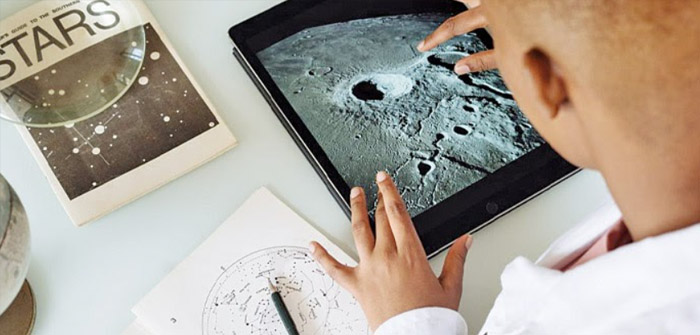(Photo | Courtesy of Audio Visual Bend)
“Okay, Einstein.” “That was smart!” “Your baby is so smart.” These are all common sayings we’ve heard that center around the idea of smart or intelligence. But what is smart? As we progressed further into the 21st century, technology seems to be outdoing itself every day. The stock market is skyrocketing, the way we interact with each other and do business has changed completely and the internet seems to rule our lives. So when we hear the word “smart,” how has its meaning changed? Most of you have a smartphone in your pocket, many teachers have smart boards (a technology integrated touch screen whiteboard with a proprietary pen with software) and our kitchen is filled with “smart” appliances.
How this applies today
Today the word smart can be used to reference technology, specifically artificial intelligence technology. AI was a word that scared a lot of people a decade or two ago. Now it’s nearly unavoidable. With the word smart directly correlating to an item having some sort of artificial intelligence, smart devices and AI devices are in more places than we realize. The demonizing of artificial intelligence through science fiction movies is what caused a lot of pandemonium when it came to the idea of your technology being “smart.” The truth is, there’s a lot of benefits to having smart technology. We know it’s constantly making our lives easier and more efficient. Especially right now, as we heavily rely on technology to carry our schools and jobs.
Where does AV come in?
Audio and visual technology and setup have become extremely important during the pandemic; especially relating to Zoom rooms. Audio Visual Bend does Zoom rooms for clients since the pandemic. A Zoom room is essentially a room with an acoustical treatment plan, cameras, microphones and a speaker setup for Zoom meetings. It’s an essential function to help schools and businesses have effective and efficient meetings. Having properly set up cameras, speakers and microphone systems make the stress of having a Zoom meeting melt away. In addition to this, the soundproofing and acoustical treatment plan will diminish the possibility disrupting of others and minimize others disrupting you.
Audio visual and smart technology doesn’t end with Zoom meetings though. Before the pandemic, audiovisual mixed with smart technology often looked like integrating smart devices and appliances. Often customers would want in-home speaker systems and automatic lighting that can be adjusted with simpler panels or even from their phones. Customers often strived for a result that was less autonomous.
Where is it going?
Audio visual definitely has some changes coming in the future with the way technology is going. Ten years ago, audiovisual was more corporate-based and for wealthier clients. But as technology progresses, audio-visual becomes more affordable. Audio Visual Bend predicts that more of our customers want to be integrating systems into their homes like speakers, cameras, projectors and acoustical treatments over the next few years. It will start to look more like an in-home service industry model, rather than a one-time installation of a product or solving a problem. It’ll be something that’s ongoing integrating new technology into homes and corporate offices.
Smart is definitely a peculiar word with lots of meaning. But with new waves of technology coming out all the time and audio and visual being thrown into an entirely new pool of opportunities, the word “smart” really has developed its own new meaning.





